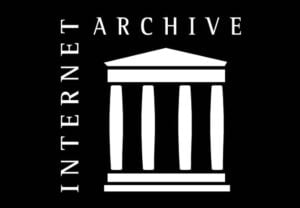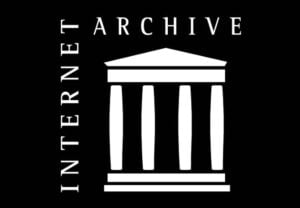
The Internet Archive is doubling down on its position that its digital lending library service operates under the bounds of fair use. Major publishers assert that digitizing books without appropriate licensing amounts to infringement but IA counters that the practice is in the public interest. It also fits copyright’s ultimate purpose; to promote the broad public availability of literature and other arts.



I expect them to not provoke the $200 billion lawsuit in the first place. They should never have done the “Emergency Library”, it was an obvious boneheaded decision.
Then, once they had done it and the inevitable lawsuit came down on them, they should have tried to settle the lawsuit. Not fight to the bitter end, not double down. They’re only making it worse for themselves. It’s not simply losing the lawsuit that could destroy them, it’s refusing to negotiate.
The emergency library followed the same legal framework that ebook lending follows at local libraries.
A library owns x many copies of a book, and they remove some percentage of them from circulation so that they can leverage them to lend digital copies (usually via Libby).
All IA did was coordinate with libraries that were closed due to COVID to allocate a portion of their uncirculated books for IA’s lending system. It was never uncapped, and even used DRM to protect against piracy like Libby does.
Every book that was lended had a physical copy deliberately uncirculated for the purpose of allowing redistribution. It was entirely legitimate, and I commend them for doing it.
Publishers are already trying to fight against libraries that they feel threaten their profitability. This attack against IA is just a test case for going after local libraries, and Libby next. I want IA to fight this and win, because we’re fucked on multiple levels of they lose.
Don’t blame IA for fulfilling their mission to make knowledge free. Blame capitalists for attacking libraries in an attempt to make knowledge less free.
No, it did not. From the Wikipedia article:
Emphasis added. They took the limits off.
What the libraries do is already in a legal grey area, the publishers just don’t go after it because it’s more trouble than it’s worth and would bring bad press. Like how most rightsholders ignore fanfiction. But the IA went way beyond that and smacked them in the face.
Their mission is archiving the Internet. a mission that they are putting at risk with this stunt.
I think you might be confused, albeit by a poorly written Wikipedia article.
First of all, it isn’t clear what it is meant by “removing the waitlists and expanding access to all readers”. It doesn’t seem to mean uncapping loans without backing them with physical books. In fact, the part of the wiki you quoted is the first of two mentions of the word “waitlist”, a word that doesn’t appear in either of the sources cited for those sections.
In fact, the first cited source says this:
And this:
And this:
So it seems easy for me to conclude, having checked Wikipedia’s sources, that the plaintiffs are challenging the Open Library CDL system itself, as a threat to their profits, even though IA was playing by the same rules as every other library system, and that IA losing this fight will be a major blow to libraries across the country:
Tl;Dr: Everything I said was correct, and the publishers want to establish precedent that definites physical books and ebooks and separately licensed so that libraries lend out fewer books, and/or have to pay more to loan out the same number of books that they currently do. They just chose IA as the first target hoping that smaller libraries will be forced into compliance should they win.
Also, someone who knows how to effectively edit Wikipedia articles needs to overhaul that page, because it seems intentionally written to make IA look like they did something much worse than they actually did.
As I said, the “traditional” CDLs were also in a legal grey area. But once the publishers are suing IA for going full Library Genesis anyway, why not also include those?
I went back to one of the older articles I could find on this subject, from before the lawsuit was filed. Some particularly-relevant excerpts:
…
…
Ironically the FAQ that Internet Archive put online has been taken down, but I found it in their Wayback Machine. It says:
So it seems pretty clear to me that by “suspending waitlists” it means that they’re going to “lend” more copies simultaneously than they actually have.
The Internet Archive had been poking a bear with a stick for years and the bear had been grumbling but not otherwise responding. So they decided to try giving it a whack across the nose with the stick instead. Normally I’d just sigh and shake my head at their stupidity, but they’re carrying a precious cargo on their back while they’re needlessly provoking that bear, and now they’re screaming “oh no my precious cargo! Help me!” While the bear has a firm grip on their leg. That makes me extra frustrated and angry at them for doing this.
I’m not siding with the bear here, I should be very clear. The publishers are awful, the whole concept of copyright has become corrupt and broken, and so on and so forth. But the Internet Archive isn’t supposed to be fighting this fight. They were supposed to be protecting that precious cargo, and provoking the bear is the opposite of doing that.